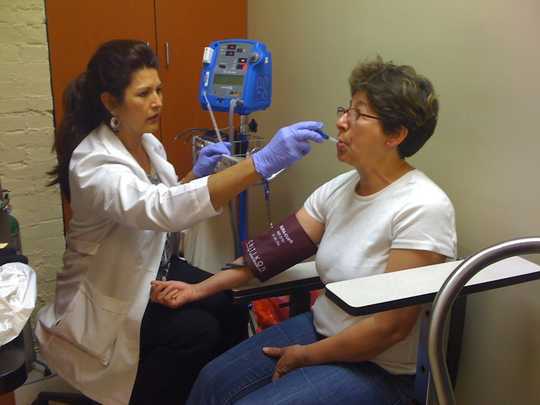
The average human body temperature in the United States has decreased over the past 157 years, researchers report.
“Our temperature’s not what people think it is,” says Julie Parsonnet, professor of medicine and of health research and policy at Stanford University and senior author of the paper in eLife. “What everybody grew up learning, which is that our normal temperature is 98.6, is wrong.”
German physician Carl Reinhold August Wunderlich established that standard of 98.6 degrees in 1851. Modern studies, however, have called the number into question, suggesting that it’s too high. A recent study, for example, found the average temperature of 25,000 British patients was 97.9°F.
In their new study, Parsonnet and colleagues explore body temperature trends and conclude that temperature changes since the time of Wunderlich reflect a true historical pattern, rather than measurement errors or biases.
Get The Latest By Email
They propose that changes in our environment over the past 200 years, which have in turn driven physiological changes, resulted in the decrease in our body temperature.
677,423 body temperature measurements
Parsonnet and her colleagues analyzed temperatures from three datasets covering distinct historical periods.
The earliest set, compiled from military service records, medical records, and pension records from Union Army veterans of the Civil War, captures data between 1862 and 1930 and includes people born in the early 1800s. A set from the US National Health and Nutrition Examination Survey I contains data from 1971 to 1975. Finally, the Stanford Translational Research Integrated Database Environment comprises data from adult patients who visited Stanford Health Care between 2007 and 2017.
The researchers used the 677,423 temperature measurements from these datasets to develop a linear model that interpolated temperature over time. The model confirmed body temperature trends that known from previous studies, including increased body temperature in younger people, in women, in larger bodies, and at later times of the day.
The researchers observed that the body temperature of men born in the 2000s is on average 1.06°F lower than that of men born in the early 1800s. Similarly, they observed that the body temperature of women born in the 2000s is on average 0.58°F lower than that of women born in the 1890s. These calculations correspond to a decrease in body temperature of 0.05°F every decade.
Not just a better thermometer
As part of the study, the authors investigated the possibility that the decrease could simply reflect improvements in thermometer technology; thermometers used today are far more accurate than those used two centuries ago. “In the 19th century, thermometry was just beginning,” Parsonnet says.
To assess whether temperatures truly decreased, the researchers checked for body temperature trends within each dataset. For each historical group, they expected that measurements would be taken with similar thermometers. Within the veterans dataset, they observed a similar decrease for each decade, consistent with observations made using the combined data.
While the authors are confident of a cooling trend, the strong influences of age, time of day, and genders on body temperature preclude an updated definition of “average body temperature” to cover all Americans today.
Easier living, lower temps
A reduction in metabolic rate, or the amount of energy used, could explain the decrease in average body temperature in the US, the researchers say.
The authors hypothesize that this reduction may be due to a population-wide decline in inflammation: “Inflammation produces all sorts of proteins and cytokines that rev up your metabolism and raise your temperature,” Parsonnet says.
Public health has improved dramatically in the past 200 years due to advances in medical treatments, better hygiene, greater availability of food, and improved standards of living.
The authors also hypothesize that comfortable lives at constant ambient temperature contribute to a lower metabolic rate. Homes in the 19th century had irregular heating and no cooling; today, central heating and air conditioning are commonplace. A more constant environment removes a need to expend energy to maintain a constant body temperature.
“Physiologically, we’re just different from what we were in the past,” Parsonnet says. “The environment that we’re living in has changed, including the temperature in our homes, our contact with microorganisms, and the food that we have access to.
“All these things mean that although we think of human beings as if we’re monomorphic and have been the same for all of human evolution, we’re not the same. We’re actually changing physiologically.”
Myroslava Protsiv, a former Stanford research scientist now at the Karolinska Institute, is the study’s lead author. The National Institutes of Health supported the work.
books_health










